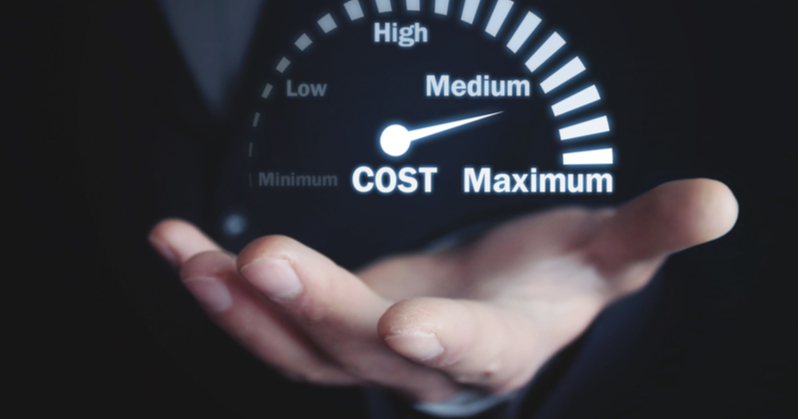When you’re shopping for accounting software for your firm or clients, chances are one of the first things you’ll look at is cost. And if you’re bouncing around from one accounting software provider to the next, you’ll probably notice that the cost can vary. But, why? Certain factors (six, to be exact) can drive up costs.
Factors that can drive up accounting software cost
You may find yourself asking, “Why is Accounting Software A more than Accounting Software B?” or “Why is my accounting software a little pricier than this other software?” A lot of things can impact accounting software cost. But typically, it all comes down to these six factors.
1. Type of software
There are a number of accounting softwares out there. And, they can vary in a couple of different ways. When it comes to price, a software’s cost can vary depending on if it’s:
- Online (cloud-based) or desktop
- Basic or premium accounting software
Online accounting softwares typically have month-to-month pricing, whereas desktop software may have a flat price or an annual fee. While considering an accounting software’s cost, take a look at whether it’s cloud-based or desktop.
Basic software vs. premium software can also influence cost. A basic accounting software with fewer features is going to be cheaper than a premium software that offers more options. If a provider offers different tiers of software, compare the differences and determine your needs to narrow down your options.
2. Features
One factor that can drive up accounting software cost is features. Depending on the software, the provider may charge you:
- A standard fee for all features (e.g., $20 unlimited access to every feature)
- Based on how many features you need/use (e.g., add-ons)
- Based on usage (e.g., how many times you’ve invoiced customers)
The more features a software has, the more expensive it can be. And sometimes, you or your clients may get stuck paying for unnecessary features. Or, they may need to pay a little extra to get the features they want and need.
Along with basic features, like invoicing and recording payments, you or your client may want some additional features, such as:
- Account reconciliation
- Payroll integration
- Ability to accept credit card payments
- Recurring invoices
- Invoice payment reminders
- Ability to create and send estimates
Before committing to a software, make sure you know how much bang for your buck you’re getting. And, be sure you know if there are any hidden fees for certain features. Ask yourself if the features are necessary and whether or not you’ll need certain features in the future.
Make a list of the must-have features for your firm or client while shopping for software to ensure you or your clients aren’t overpaying for unnecessary features.
3. Support
When using accounting software, having top-notch support you can go to with questions is a must. But, some software companies tack on an extra fee for support.
While on the hunt for accounting software, pay attention to what kind of support is included in the cost. Keep your eyes peeled for free support. And if the company doesn’t offer free support, see if the software company offers multiple tiers of support and how much they cost.
Although paying extra for support is not ideal, it may be worth it to get the help you and your clients need. But, keep in mind that there are plenty of reliable providers out there that don’t charge additional fees for expert support.
4. Number of vendors and customers you have
Depending on how the software provider’s pricing works, you may need to pay extra based on the amount of customers you invoice or the vendors you pay.
When looking into price, find out if the software company charges a per customer or vendor price. Or, see if they let you pay as many vendors or invoice as many customers as you’d like.
5. Extra add-ons
When it comes to accounting software, things can add up fast … especially if there are a lot of hidden fees. When you commit to an accounting software, make sure you know all of the potential fees you or your clients could have for additional add-ons.
Some hidden costs and fees may include:
- Integration
- Startup fees
- Cancellation fees
- Customer service fees
- Annual upgrade fees
- Fees for adding additional users
6. Commitment and contracts
The last factor that can hike up the price of accounting software is commitment. In some cases, how long you must commit to a software and contracts can impact price.
Many accounting software companies require you to commit to their product for a certain amount of time (e.g., minimum one year) before you can break your contract. However, other software providers may have month-to-month pricing with no commitments or contracts, allowing you to leave whenever you’d like.
If a software company has a long-term contract, you may get stuck paying a higher price for an extended period of time and have no choice but to stick with it.
On the other hand, providers that don’t require any contracts can typically offer you low month-to-month pricing. And in many cases, these companies may not even charge you for leaving since there are no commitments.
Before committing to a software, make sure you know what you’re getting yourself into commitment-wise.
Options to cut down on software costs
Now that you know which factors can impact cost, let’s take a look at a couple ways you can save some money on software. If you are looking for accounting software for your firm or clients, keep an eye out for:
- Free trial offers
- Exclusive partner program pricing
- Low month-to-month pricing
- No contracts or obligations
There are plenty of ways to help cut down on software costs. Be on the lookout for special pricing and deals. And if you’re looking to bring on multiple clients, ask the provider if they offer any special discounts or pricing for accountants.
On top of checking out deals, make sure you’re also looking at customer reviews and business experience (e.g., how long the accounting provider has been around), and security. An accounting software with a bad business reputation, little experience, and weak security could spell doom for your firm’s or clients’ books.
.png?width=150&height=63&name=TWRlogo-regmark_blueblack%20(1).png)
.png)










Do you have questions about this article? Email us and let us know > info@woodard.com
Comments: